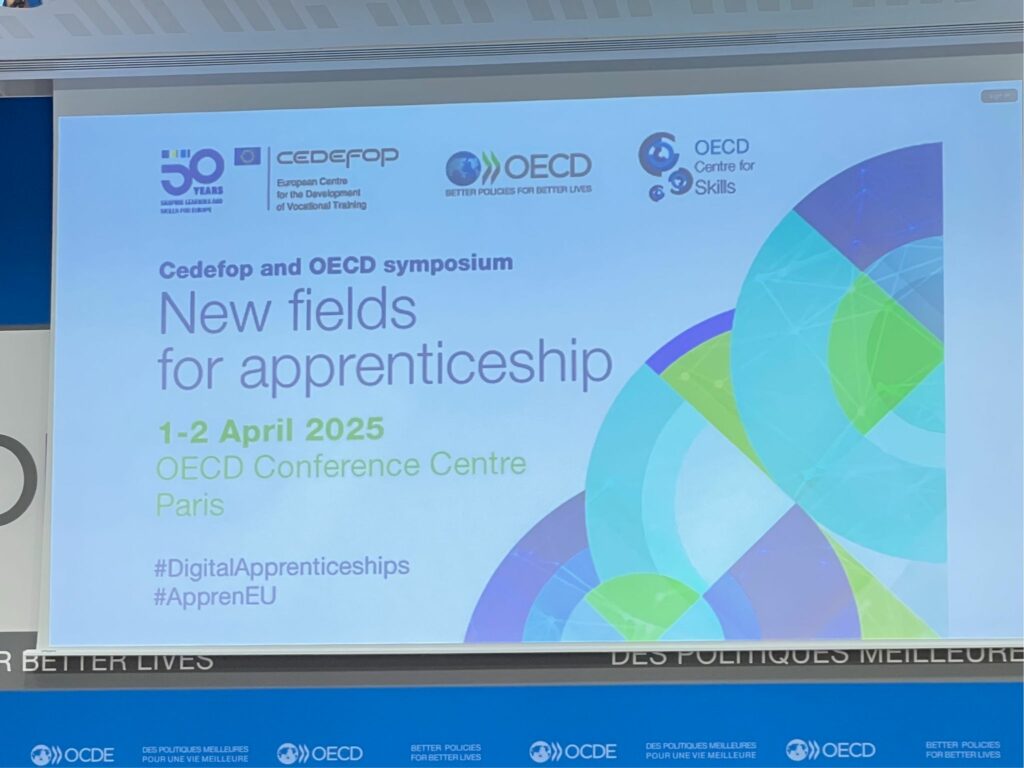Tuscany’s apprenticeship model showcased at the 2025 Cedefop-OECD symposium
07/04/2025

The 2025 Cedefop-OECD Symposium: New Fields for Apprenticeship took place on April 1-2 at the OECD Conference Centre in Paris, bringing together experts from around the world to explore how apprenticeships are expanding into new sectors. A key highlight of the event was the participation of Miriana Bucalossi, representing the Tuscany Region and EARLALL, who presented groundbreaking research on the dual apprenticeship pathway for wine technicians in Siena.
Miriana Bucalossi’s presentation emphasized the critical role of apprenticeships in addressing economic and technological transitions. She highlighted how a well-structured apprenticeship system can:
- Align training with labor market needs
- Strengthen the link between education and businesses
- Promote innovation and competitiveness in key sectors
Governance models play a fundamental role in ensuring both quality and inclusivity in apprenticeship programs. Strong public-private cooperation and structured learning pathways are essential for ensuring the success of apprenticeships in evolving labor markets.
Tuscany’s Wine Apprenticeship Model: Bridging Tradition and Innovation
One of the best examples of an apprenticeship model driving regional and sectoral development is the case of Tuscany’s wine sector. Miriana Bucalossi’s research explored how collaboration between training institutions, businesses, and local stakeholders has shaped a dual apprenticeship system that:
- Enhances the attractiveness of wine-related professions
- Ensures effective skills transfer between generations
- Boosts the sector’s competitiveness and innovation
This territorial approach to skills governance demonstrates how apprenticeships can respond to local industry needs while simultaneously strengthening human capital.
To consolidate the role of apprenticeships in skills development and economic resilience, Bucalossi outlined several key areas for action:
- Strengthening public-private cooperation for better coordination of training policies
- Ensuring clear progression pathways from apprenticeships to higher qualifications and continuous training
- Investing in strategic sectors, promoting apprenticeship models that respond to emerging labor market demands
Reflecting on her participation, Miriana Bucalossi expressed her enthusiasm:
“I’m honored to have presented our research at this high-level event. The symposium provided a valuable platform to showcase how dual apprenticeships can combine tradition and innovation in the wine sector. I look forward to applying the knowledge and best practices gained to further improve our apprenticeship programs in Tuscany.”
Looking ahead, EARLALL and the Tuscany Region will launch in May 2025 a new Interreg Europe project titled “QUEEN – Quality Apprenticeships for Evolving Labour Needs“. This initiative aims to empower youth and adults with quality apprenticeships that adapt to evolving labour markets, fostering inclusive, sustainable career pathways for all.




